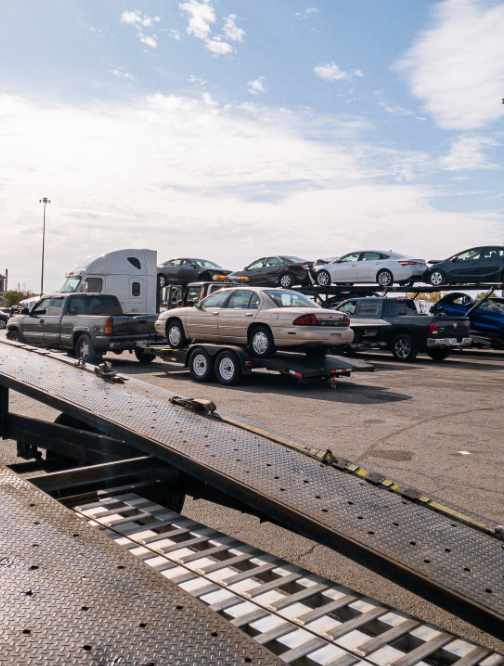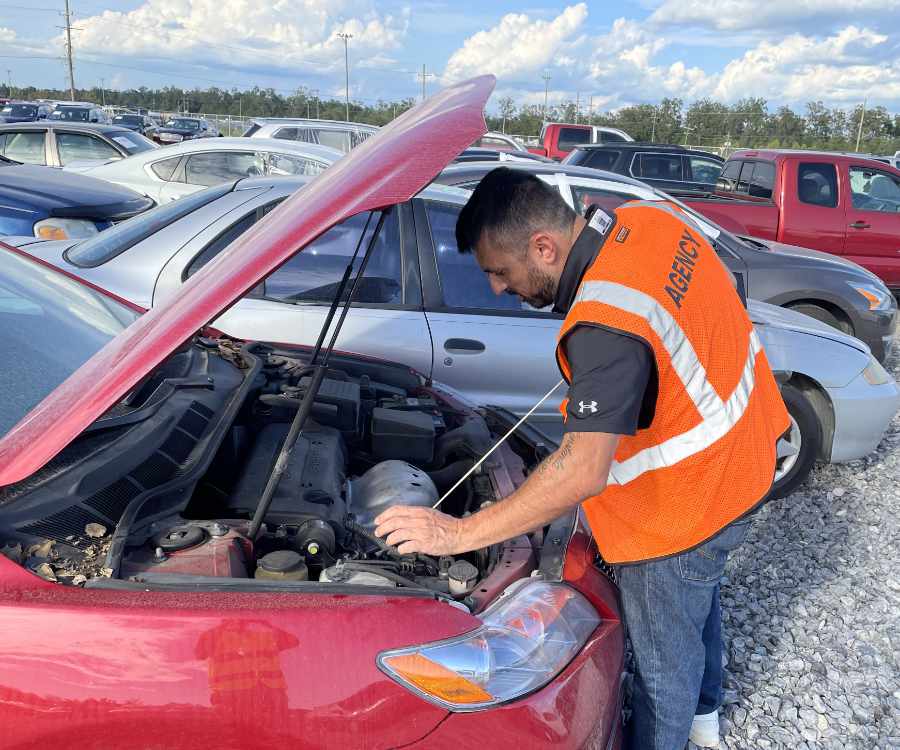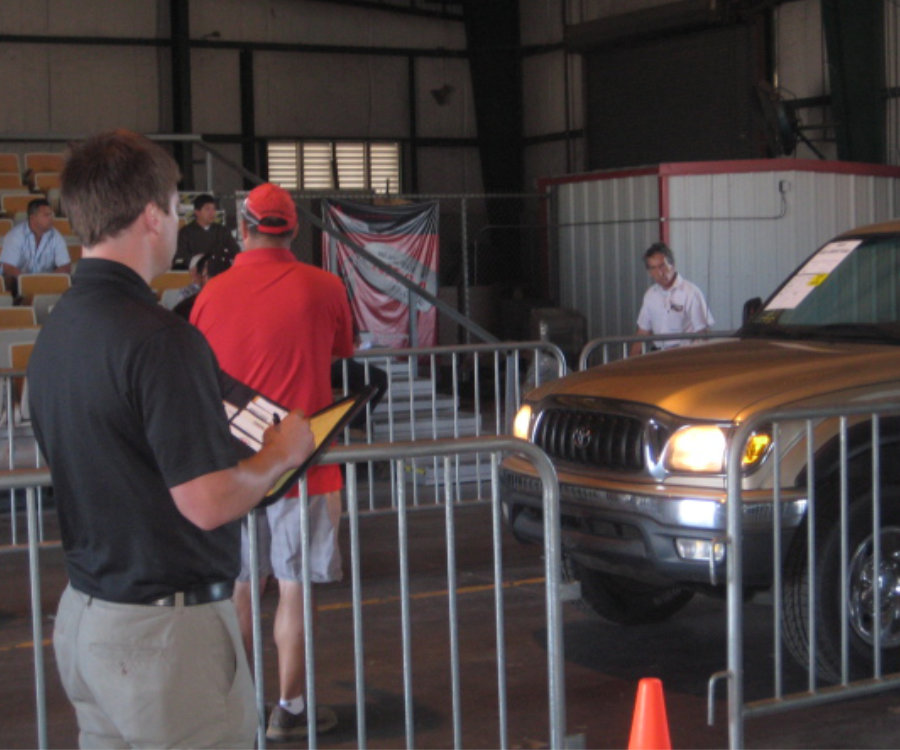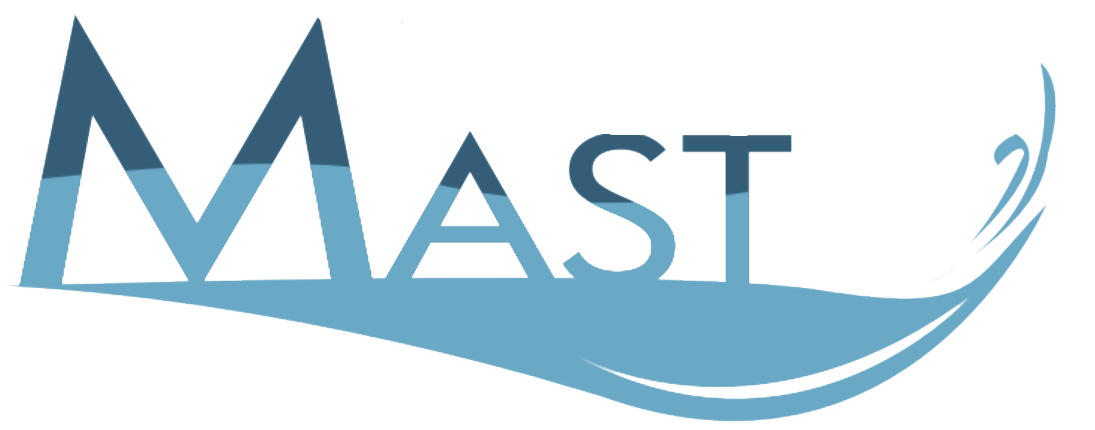
Our Process
Our Process
At MAST, our goal is to maximize returns through the auction process of your existing vendor. By studying your inventory, understanding the marketplace, and employing our 40 years of salvage auction expertise, we identify opportunities for return increases on a car-by-car basis.
External factors present a constant set of variables that impact the salvage marketplace. The MAST review process encompasses trend analysis to account for short-cycle shifts in these variables and adjust performance expectations.
Over 12 years of data suggest that our reserve expectations are met 75% of the time on the initial auction run. But, 25% of initial auction sales under-perform fair market value and need review for negotiation.
In 2020, these individual vehicle increases in return netted an additional $9 million to our customers. So, what is our process for generating these gains? Keep reading…


Salvage Quotes
An adjuster initiates a request seeking additional insight as they weigh their decision to repair or replace. A member of our Analysts team reviews the photo set and estimate provided to identify comparable salvage sold within a recent time window to account for the current cycle noting any market shifts factoring into their research. The Analyst reviewing the claim responds with a narrow window of expectation for the expected return, provides the documented material used as a reference along with a description of their logic to determine the provided quote.
As crucial as drilling down into the unit specifics with our VIN decode and a thorough estimate inspection is, setting expectations based on current market trends is equally valuable to forecasting an accurate salvage value. MAST understands that it takes approximately 60 – 90 days to process a claim before the quoted unit runs at the auction. We hold our team to a high level of accuracy in all aspects, and our quoting program is no different.
To maintain accountability in our quotes, our platform tracks each quoted vehicle. It will then alert our Analysts when a previously quoted unit is set for sale with the accompanying documentation to support pre-sale market research and account for any adjustments before the auction. Our team maintains contact with the adjuster throughout the process until the final resolution at auction.
In 2020, 44% of quote requests settled outside of the auction. Claims departments we partner with routinely use this process to support their owner retain conversations and enhance subrogation negotiations to account for full salvage value before settlement.

Inventory Review
We start with experienced personnel, familiar with the many variables that affect salvage returns, reviewing your inventory in its entirety. That means we evaluate each vehicle taking note of condition, damage extent, and overall vehicle presentation in preparation for the upcoming sale.
At MAST, our goal is to effectively and efficiently review all inventory for a salvage provider before any vehicle runs through auction. This process allows us to accomplish several things at once.
We review and confirm all vehicle description information sent to the auction vendor for accuracy and completeness and relay any updates to the auction branch manager. We make recommendations for any vehicle enhancements, such as making keys for start vehicles, tire changes, clean up, re-imaging, and more. An on-site review provides us a better understanding of the overall condition and “curb appeal” at auction, allowing us to assess market value more accurately.

Research Value
As we review each vehicle, we determine an anticipated return or essentially a fair market auction value. This value is driven by various variables, including vehicle make and model, buyer demand, geographic market strength, and overall condition. With a fair market value recorded for each vehicle before the auction, we can make effective and calculated sell or no sell decisions during each auction run.
Every vehicle has a fair market value regardless of its pre-loss actual cash value or its current condition. The MAST process to assess salvage dives beyond the specifics of the vehicle, condition, and loss type by factoring in market volatility. We track several data points that impact our marketplace to understand external variables and impact buyer behavior.
Additionally, our philosophy is to review and set expectations on 100% of the inventory. The bulk of an insurance company’s salvage inventory is valued closer to the overall average ACV. Rather than concentrating on just the small percentage of high ACV vehicles, it only makes sense to assess fair market value on each unit and record that amount as a minimum acceptable bid to maximize returns.
Historical data indicates that 25% of the time, the auction underperforms on the initial run. Setting a reserve with a fair market value in advance of auction day automatically flags initial bids that fall short and identifies when it makes sense to step in and negotiate a sale price closer to fair market value.

Auction Results
MAST monitors auctions in person and online to ensure the best possible returns on each vehicle. This practice allows us to gauge buyer interest more effectively and better identify opportunities for return increase. We make decisive calls to sell or reject bids during the auction to ensure timely decisions for both bidders and sellers, which all parties appreciate.
With a team of analysts working remotely across the country, we can offer in person preview in advance of auction day to get the full scope of the unit selling. With realistic expectations set on 100% of the inventory, our analyst can manage the digital auction remotely. With live representation, we will negotiate in real-time with live bidders if the highest bid falls short of our preset market expectations.
MAST recognizes the importance of timely resolution of bid approvals. If bidders do not reach the auction reserve, the high bid goes up for review or bid approval. MAST will then review and accept or reject the high bid or enter into a counter-sale negotiation with the winning bidder. On reaching an agreeable amount, the vehicle sells at the negotiated price. If MAST and the buyer cannot reach an agreement, the unit is reset for sale.

Negotiate Sale
The end goal of the MAST process is to efficiently and effectively move inventory. At the end of the day, we sell your cars.
Throughout our sale oversight, we make careful and calculated decisions to ensure the best possible return numbers for our customers without significantly impacting cycle time. We attempt to balance all this without disrupting local markets and maintaining quality relationships with buyers and auction yard personnel, which drives the best possible environment for future quality returns.

